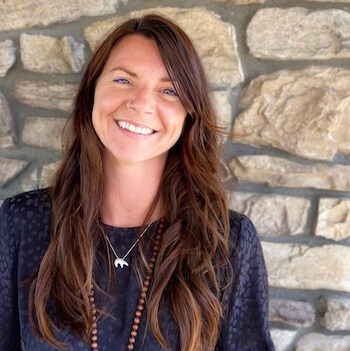
Posted: January 30, 2020
By Kathryn Ciamaichelo, Morrison Living Nutrition Care Manager
Is one calorie the same as any other? How about in the dietary needs of older adults? In a culture obsessed with counting calories, we sometimes overlook the importance of nutrition versus calories. This is especially important when considering the nutritional needs of senior citizens. Not all calories are created equal.
A colleague once asked a dietitian the amount of calories in a breakfast turkey sausage. When the dietitian told them the amount they were aghast! As the dietitian continued to share the superior qualities of the turkey sausage vs. the more traditional pork sausage links, the words fell on closed ears, this person swearing to never eat the offensive patties again! This really got the dietitian thinking. Why was this measly 100 calories so awful? After all, a glass of orange juice or slice of whole wheat bread have almost the same amount of calories, but they don’t elicit such a revolt.
We tend to think of calories superficially. We simply think the bigger the number, the fatter we get, and the smaller the number, the skinnier we get. But in reality, a calorie is much more complex. By definition, a calorie is a unit of heat. It tells us how much energy a particular food will produce in our body. They come from the nutrients that make up our food, and this is how we can truly determine whether or not they are beneficial to our health.
We encourage people to look at calories more intricately. What nutrients are they coming from? Carbohydrates and protein both provide 4 calories per gram, while fats provide 9 calories per gram. If a particular food gives you 100 calories, but it’s all from added sugars (carbohydrates), that’s certainly not a nutritionally dense food. If you have a 100 calorie item, but it has 8.5g protein (34 calories), 12g carbohydrate (48 calories) and 2g fat (18 calories), you have a much more balanced product, which will ultimately make you feel fuller longer, and allow your body to utilize that energy fully.
If you are a calorie counter, challenge yourself to look past just the total calories to determine whether or not the food you’re eating is substantial and nutritionally dense and not just void of healthy nutrients, resulting in lower calories. Residents at Casey’s Pond Senior Living can consult with their onsite registered dietitian at any time to discuss concerns such as this. For those not living in the community, there are a variety of online articles and resources. Try this one from the National Council on Aging.
About The Author
 Kat Ciamaichelo is a registered dietitian, ski and mountain bike enthusiast and travel junkie. She’s on a mission to prove that healthy eating doesn’t involve restriction or a rocket science degree. When she’s not in the office or on a mountain, you’ll find her cooking without a recipe or working on her crossword skills.
Kat Ciamaichelo is a registered dietitian, ski and mountain bike enthusiast and travel junkie. She’s on a mission to prove that healthy eating doesn’t involve restriction or a rocket science degree. When she’s not in the office or on a mountain, you’ll find her cooking without a recipe or working on her crossword skills.